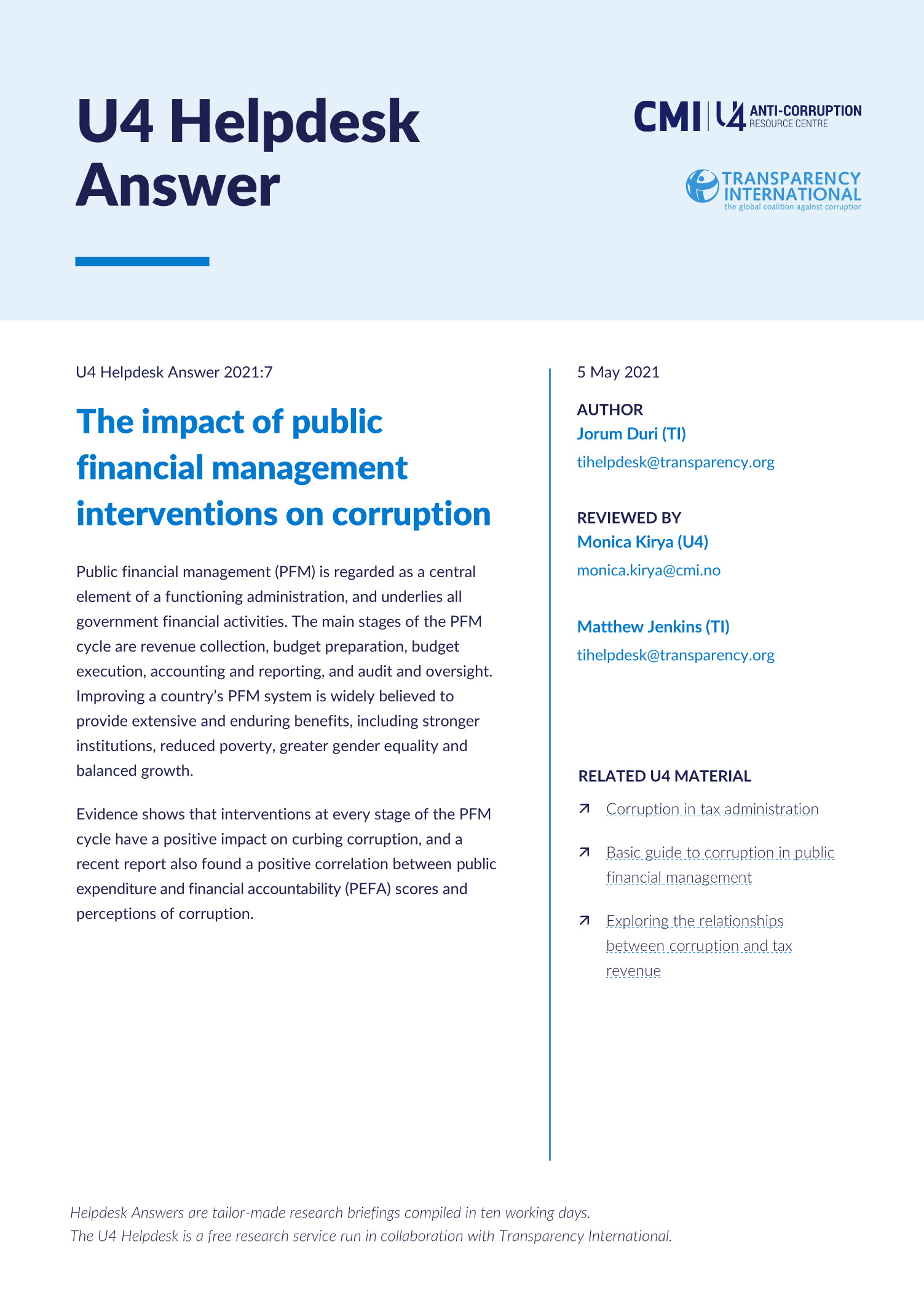Main points
- The PEFA framework was revised in 2016. It assesses PFM performance using 31 indicators across seven pillars: budget reliability, the transparency of public finances, the management of assets and liabilities, policy based strategy and budgeting, predictability and control in budget execution, accounting and reporting, and external scrutiny and audit.
- Empirical evidence and the literature generally support the view that PFM reforms have a positive impact on reducing corruption. However, many of the findings are based on perceptions based indicators of corruption.
- A recent World Bank study found a positive correlation between overall PEFA scores and Worldwide Governance Indicators’ Control of Corruption score.
- Evidence from the available literature and case studies show that technical improvements on PFM are dependent on the political will to implement them.


